12 times civil society changed the world in 2023
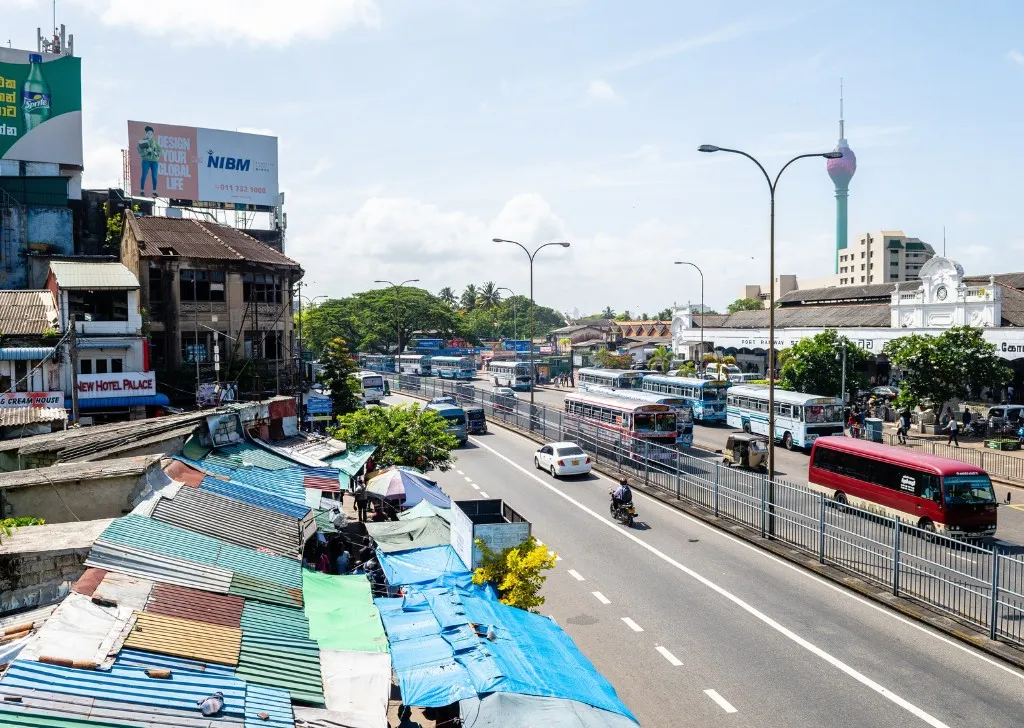
People with deafness granted driving rights in Sri Lanka
Asia
Structural discrimination against individuals with disabilities persists worldwide, fueled by wrongful assumptions about their capabilities. MyRight, along with its members and partners, are dedicated to challenging these prejudices and creating a more inclusive society. In a significant victory, their efforts have resulted in the removal of a major obstacle in Sri Lanka: the denial of driving licenses to individuals with hearing impairments.
For two decades, the Central Federation of the Deaf in Sri Lanka, a partner organization of MyRight, advocated tirelessly against this discriminatory policy. They argued convincingly that hearing impairment does not equate to inferior driving skills. Eventually, their persistence paid off, leading the Ministry of Transport and Highways to conduct a three-month pilot program in one province.
During the pilot, 40 driving licenses were issued to individuals with deafness, accompanied by awareness programs for police and relevant authorities. The selected group demonstrated impeccable driving skills, with no traffic violations recorded throughout the program. Encouraged by the success of the pilot, the Ministry has decided to roll out the program nationwide, marking a significant milestone in promoting mobility and freedom of movement for individuals with hearing impairments.
Strengthening press freedom in Latin America
Latin America
In the face of growing concerns over democracy and shrinking space for civil society in various Latin American countries, an innovative initiative, Networks Against Silence, is making strides toward safeguarding press freedom and enhancing democratic principles across the region.
This collaborative effort, spearheaded by the Latin American Centre for Journalistic Research (CLIP), involves journalists from across the continent, including some who have been forced into exile due to threats and legal challenges. Through a series of impactful projects, CLIP has fostered a transnational partnership, bringing together over 20 media outlets and organizations in several countries, including Argentina, Bolivia, Brazil, Chile, Colombia, Costa Rica, Guatemala, Honduras, Mexico, Nicaragua, Paraguay, Peru, Spain, the United States, Uruguay and Venezuela.
One of CLIP's investigations, Digital Mercenaries, has illuminated the shadowy dealings of political and business figures across the Americas, leading to significant political inquiries in Costa Rica and raising serious questions in Brazil regarding former president Bolsonaro's business dealings. Similarly, the Narcofiles and Grey Carbon projects have exposed the intricate web of organized crime and environmental disregard plaguing the region, sparking critical conversations about governance, accountability, and the protection of indigenous lands.
In collaboration with the Foundation for Freedom of Press (FLIP), CLIP's efforts are amplifying the voices of civil society organizations dedicated to press freedom in countries facing severe restrictions, including Guatemala, Honduras, and Nicaragua. Together, these organizations are forging a robust network that champions the cause of free expression, ensuring journalism continues thriving as a pillar of democracy in Latin America.
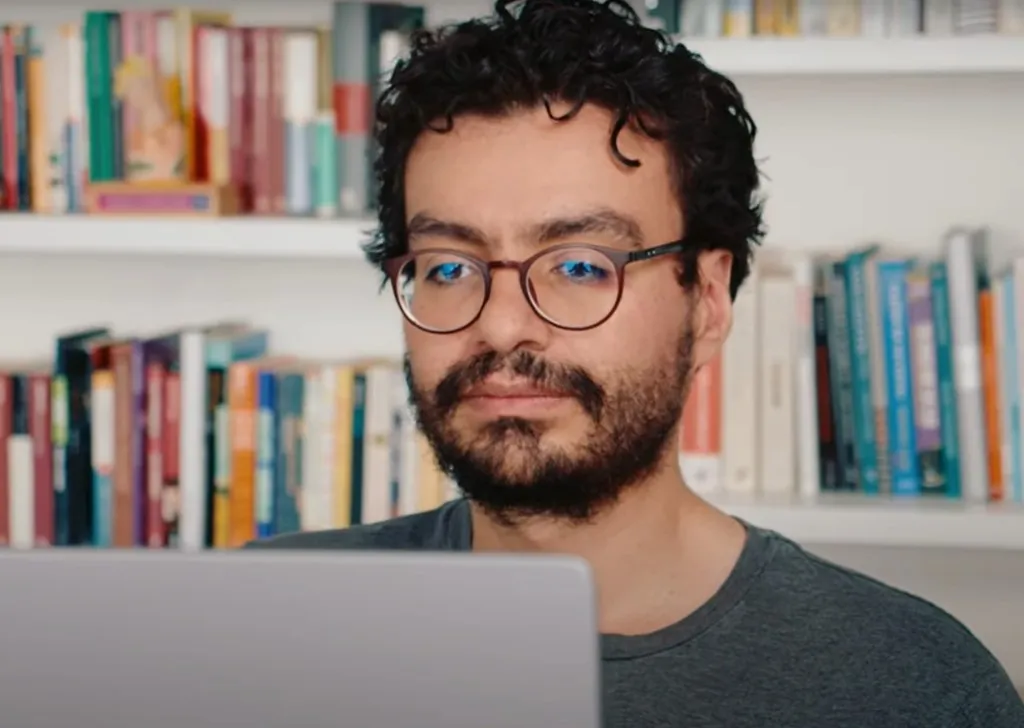
Somaliland state seizes responsibility for mental health
Africa
The Somali-Swedish Research Association (SSRA) and Amoud College of Health Science (Amoud) have transformed mental health care in Somaliland. Together, they have provided essential services to nearly 700 patients, shedding light on the plight of a marginalized group battling both mental illness and discrimination.
I am hopeful that this model will not only bring wellness to patients but also assist us to overcome societal challenges caused by untreated trauma and increase understanding of mental health.
Through extensive awareness campaigns and community care outreach efforts led by trained workers, SSRA and Amoud have pioneered a sustainable model that prioritizes local communities' needs and fosters trust in mental health care. Their approach has not only highlighted the urgent demand for such services but has also garnered significant success, prompting the state to assume responsibility.
The state's decision to employ the community health care workers directly and allocate funding to scale up services across the country marks a monumental shift in mental health care provision.
“The work of SSRA and Amoud has introduced a new sustainable way to treat mental illness, in close connection to local communities that builds the necessary relationships and trust to treat mental illnesses. As a state representative, I am hopeful that this model will not only bring wellness to patients but also assist us to overcome societal challenges caused by untreated trauma and increase understanding of mental health”, says Dr Yakoub Aden Abdi, Director of mental health at the Ministry of Health, Somaliland.
Civil society resilience in the face of the authoritarian crackdown in Belarus
Europe
In the aftermath of the 2020 revolution that rattled Belarus, the authoritarian regime, led by ageing dictator Lukashenko, retaliated against perceived enemies, with civil society bearing the brunt of the crackdown. Hundreds of organizations, from sports clubs to animal shelters, not under direct state control, were deregistered, declared illegal, or labelled "extremist." Engaging with these groups on social media became a criminal offence, and the country witnessed an alarming rise in political prisoners, with over 1400 incarcerated by the end of 2023.
Despite these challenges, civil society in Belarus persists. Adapting to operate in a hybrid manner from exile or deep underground, it continues to serve its constituency and support those whose rights have been violated, even in the most restrictive context in Europe.
In 2023, ForumCiv's partner maintained a hotline for women victims of domestic violence, a crucial service that had operated for years before the 2020 revolution. Despite criminalization and exile, the organization managed to recreate part of its services, providing legal and psychological support to over 100 and 150 women, respectively, who are living in Belarus, many from rural areas with limited access to support.
Amidst the authoritarian turn, Belarus is also witnessing an ascent of conservatism, with Lukashenko targeting "untraditional values" and "child-free ideology." In this challenging environment, civil society serves as a lifeline for victims, offering essential support in the face of repression and adversity.
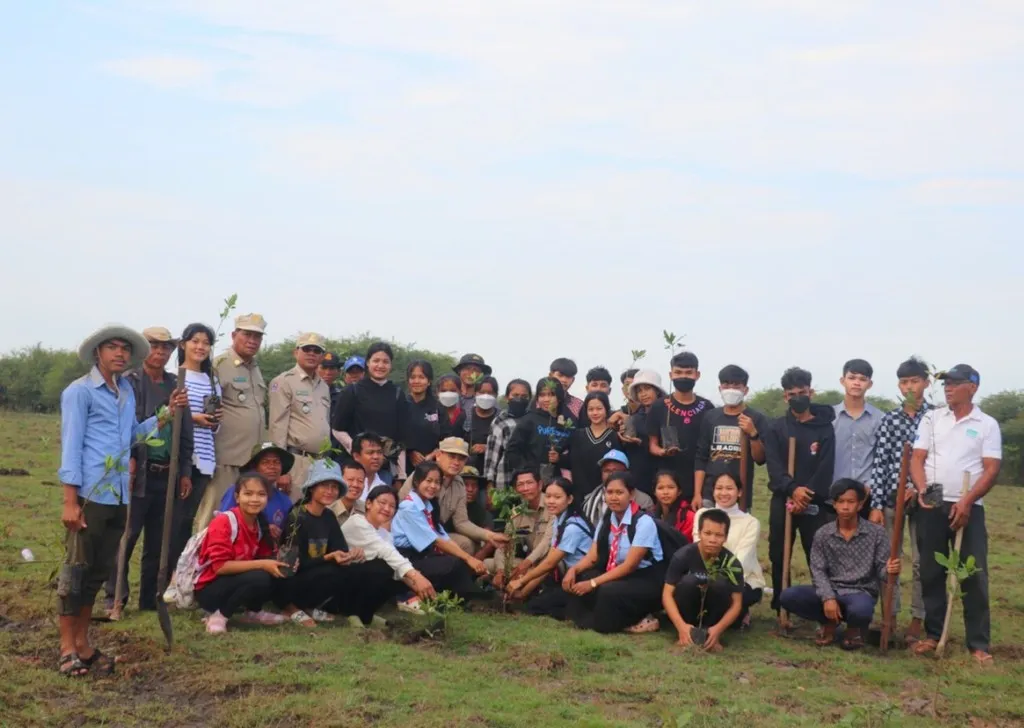
Preserving the Tonle Sap ecosystem for future generations in Cambodia
Asia
In a united effort, Community-Based Organizations alongside community members and stakeholders, are dedicating themselves to safeguarding the biological richness of the Tonle Sap lake, fostering sustainable livelihoods, and preserving the lake's cultural heritage for generations to come.
ForumCiv's partners have played a crucial role in raising awareness about environmental conservation, climate change adaptation, and the significance of the Tonle Sap ecosystem. Empowering community members through engagement in community-based natural resource management initiatives, they actively participate in decision-making processes and take ownership of Tonle Sap's resources. Together, they collaborate to protect and enhance natural resources within the conservation areas.
Building on heightened awareness and community engagement, a commendable USD 9,617.00 was contributed by community members and charitable sources to support 16 targeted organizations. These funds enable them to implement initiatives that further contribute to the preservation of Tonle Sap, reflecting a harmonious blend of community-driven efforts and external support.
This collective commitment exemplifies the potential of community-led conservation efforts, creating a lasting impact on Tonle Sap's ecological health, fostering sustainable livelihoods, and preserving the lake's cultural significance for the benefit of future generations.
Female genital mutilation practices abandoned in parts of Kenya
Africa
In a significant victory for human rights and gender equality, seven areas in northwest Kenya, near the Uganda border, have successfully abandoned the practice of female genital mutilation (FGM), thanks to the relentless efforts of Community Nursing Services (CNS) with support from Rotary Doctors Sweden.
To include local chiefs in the process has been paramount to the success of this work.
For several years, CNS has been at the forefront of the fight against FGM, child marriages, and teenage pregnancies, working closely with girls, women, their families, and influential men within the community. An independent evaluation confirms the success of their efforts: FGM is no longer practised in these areas, women report a greater understanding of their rights, and the incidence of child marriages has significantly decreased.
Crucial to the success of this initiative has been the involvement of local chiefs. Engaging them as advocates against FGM has been pivotal, as their influence and endorsement carry weight within the community.
“To include local chiefs in the process has been paramount to the success of this work. If you, for example, manage to persuade a chief to be the campaign face which articulates the unlawfulness of the FGM practise, that person is likely to stick with the position he himself presented”, says Daniel O. Muruka, Executive Director at CNS.
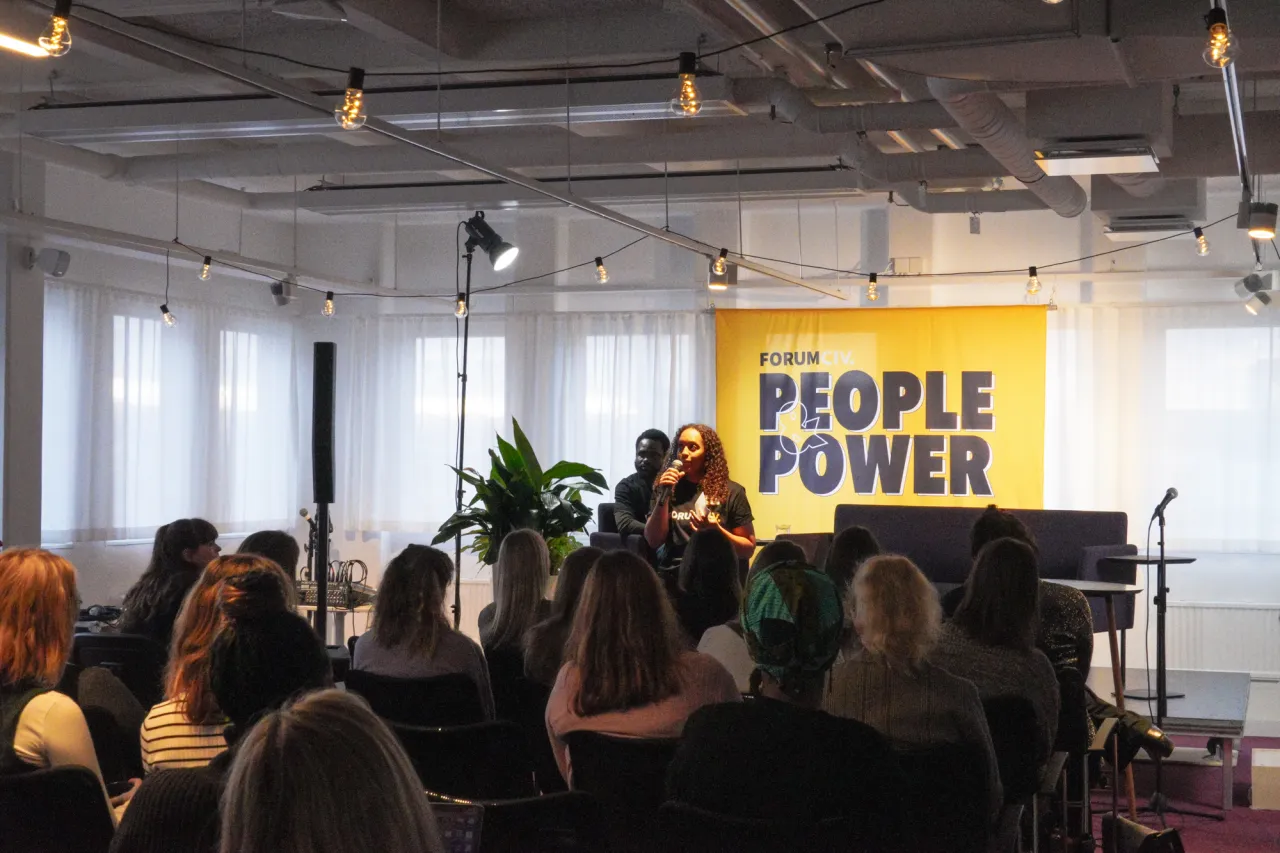
People & Power – a festival for and by civil society
Europe
In the face of a global backlash against democracy, the significance of civil society has never been more apparent. The People & Power festival, organized by ForumCiv, underscored the vital role that civil society plays in defending democratic values and fostering active citizen participation.
At a time when democratic norms are under threat worldwide, civil society serves as a bulwark against authoritarianism and oppression. Through grassroots activism, advocacy, and community engagement, civil society organizations empower individuals to assert their rights, hold governments accountable, and advocate for social justice.
People & Power provided a platform for dialogue and collaboration, demonstrating the strength and resilience of civil society in the face of adversity. By bringing together activists, organizations, and ordinary citizens, the event highlighted the power of collective action in advancing democratic ideals.
In an era marked by rising authoritarianism and shrinking civic space, the People & Power festival served as a beacon of hope, inspiring individuals to stand up for democracy and human rights. As the challenges to democratic governance continue to mount, civil society remains indispensable in safeguarding the principles of freedom, equality, and justice for all. Without it, there is no democracy.
Resolving longstanding land disputes in Liberia
Africa
In Liberia, where land disputes pose a significant threat to peace, a breakthrough has been achieved in promoting community cohesion and social initiatives. Land conflicts, identified as a major risk in a 2015 study by Liberia's Governance Commission, have been a persistent challenge, disrupting social harmony and fostering insecurity.
By scaling up such initiatives and extending their reach, they can kindle a brighter future for countless individuals.
The Kundy Community in Bomi County faced a prolonged land dispute lasting several years, causing widespread disunity and insecurity. Thanks to a grant from ForumCiv, the Women Care Initiative (WOCI), a women's rights organization, intervened and successfully resolved the conflict. WOCI conducted awareness programs on Liberia's 2018 Land Rights Act, initiating mediation between conflicting parties. After over a year of dedicated efforts, the dispute was amicably settled, with the parties signing a resolution committing to the peaceful resolution of their differences.
In a remarkable turn, the community established a local social enterprise mechanism (savings and loans) to reinforce solidarity networks and promote social cohesion. The social enterprise meetings serve as forums to discuss matters of interest to the community. After the first savings cycle, the community raised over SEK 25,000 disbursed among members.
Cyrus Cooper, the Project Officer of Women Care Initiative, expressed optimism, stating, "By scaling up such initiatives and extending their reach, they can kindle a brighter future for countless individuals." This success story not only marks the resolution of a longstanding land dispute but also serves as a testament to the transformative power of community-led social initiatives in promoting unity and resilience.
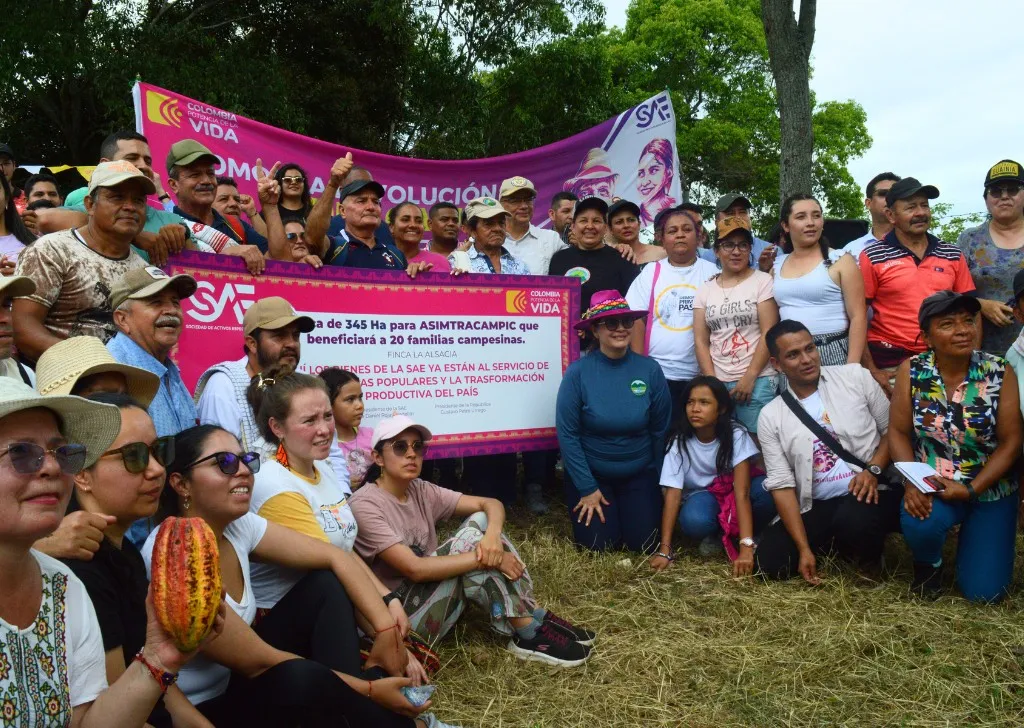
Land reform fuels rural revival in Colombia’s peace agreement
Latin America
In an inspiring development following the historic 2016 Colombian Peace Agreement, rural communities are witnessing a transformative era of growth and prosperity. With the new government's commitment in 2022, the Rural Reform is gaining momentum. The reform is a critical element of the Peace Agreement that seeks to address long-standing issues in Colombia’s countryside.
Central to this progress is the Juntanza Nacional Campesina, a coalition of rural and grassroots organizations that stemmed from the ForumCiv-led project Aremos Paz. The national platform has facilitated impactful dialogues with governmental bodies. A notable achievement includes the transfer of the Alsacia farm, spanning 354 hectares, to 20 displaced families, symbolizing a significant step towards securing land rights and fostering agricultural development.
Moreover, the initiative has introduced organic fertilizer biofactories and productive development plans across various regions, enhancing the agricultural capabilities of local communities. This move not only strengthens the livelihoods of peasant families but also reinforces the Rural Reform's objectives, marking a pivotal moment in Colombia's journey towards lasting peace and rural prosperity.
Advocacy efforts gave access to clean water for 1600 people in rural Kenya
Africa
The Kilifi Citizens Forum has trained social accountability champions using the Right(s) Way Forward methodology. This training equips champions to effectively engage duty bearers in implementing community projects.
The impact is evident as the participants successfully lobbied for crucial developments, including clean water pipeline systems, boreholes, and the refurbishment of a local dispensary. Thanks to their efforts, over 1600 community members in Kilifi County now have access to clean water in their villages.
This success stands as a testament to the positive change that can be achieved through community-driven initiatives and the Right(s) Way Forward methodology.
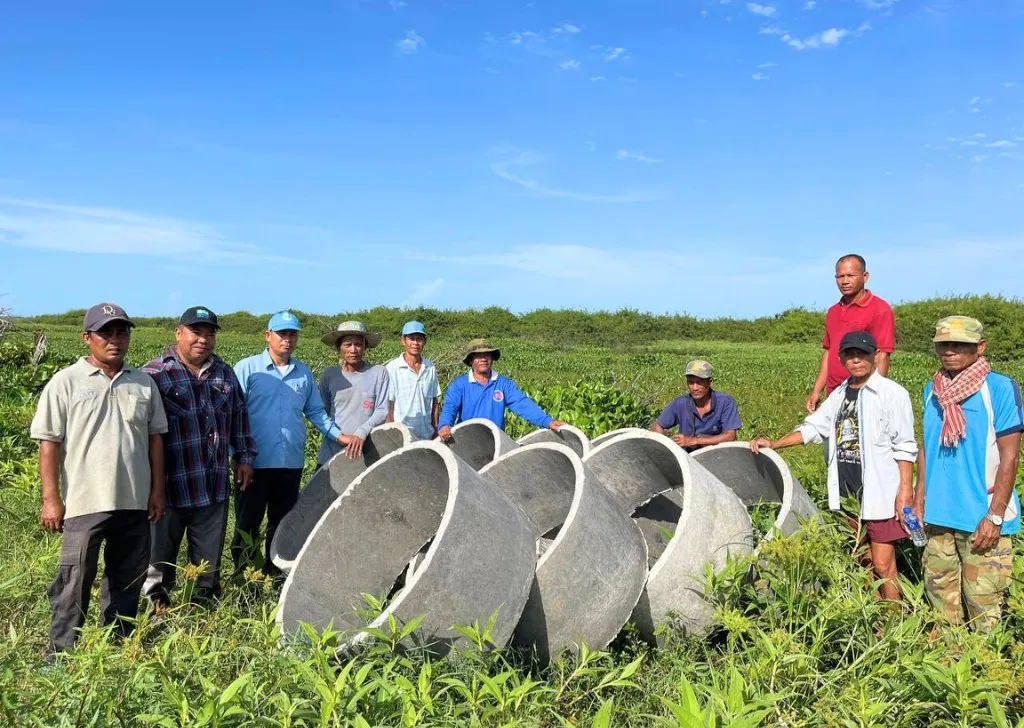
Collaborative action towards climate adaptation and natural resource restoration in Cambodia
Asia
In a concerted effort to address climate change adaptation and restore natural resources, ForumCiv and partners have forged a collaborative initiative, uniting various stakeholders including local governments, Community-Based Organizations (CBOs), and communities.
Commune councils, playing a pivotal role, allocate local budgets and enact regulations that promote climate adaptation and nature restoration. Through collaboration with targeted communes, the organization's Community Action Plans (an important step in ForumCivs Right(s) Way Forward methodology) receive support from communal funds.
In 2023, the joint efforts of the organizations resulted in 15 communes allocating USD 8,629.16 to support the communities in implementing their plans. Activities include awareness campaigns, installation of eco-friendly devices, water dam repairs, road construction around conservation areas, flooded forest planting, demarcation pole installation, and motorboat purchase.
This collaborative approach showcases the impact of united efforts at the local level in addressing climate challenges and environmental preservation.
Male leaders pledge against harmful practices in Kenya
Africa
ForumCiv's Inclusive Growth through Decent Work project in Kenya's Great Rift Valley is sparking positive change. Acknowledging the influential role men play, the project organized forums to address and eliminate harmful practices, notably Female Genital Mutilation (FGM). In these forums, male traditional leaders boldly declared their commitment to ending FGM, following ForumCiv's successful advocacy for the Narok County Policy against the practice.
In Isiolo County, partner Isiolo Gender Watch has made strides in survivor support, establishing a safe house and implementing an anti-FGM policy. Their radio talk shows provide a platform for advocacy and reporting gender-based violence, leading to the rescue of three girls from underage marriages. Beyond policy changes, Isiolo's community elders have transformed their attitudes, actively participating in awareness campaigns to create a society free from gender-based violence.
Other recent articles

ForumCiv’s social media accounts labelled as “extremist materials” in Belarus
Important message to our Belarusian followers. Any interaction with our content can now lead to legal consequences in Belarus. Please read the information below and take the necessary precautions for...

ForumCiv enters new strategic partnership
ForumCiv is proud to announce a new three-year strategic partnership with Sida, totalling SEK 137 million.
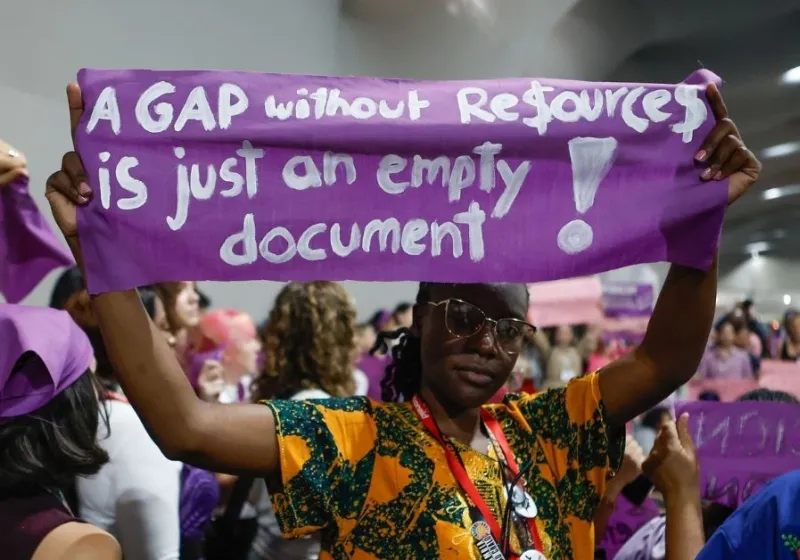
ForumCiv at COP30: African voices at the centre of climate justice
ForumCiv is participating in COP30 in Belém to amplify the voices of African civil society, who stand at the frontlines of the climate crisis yet are often excluded from decision-making.